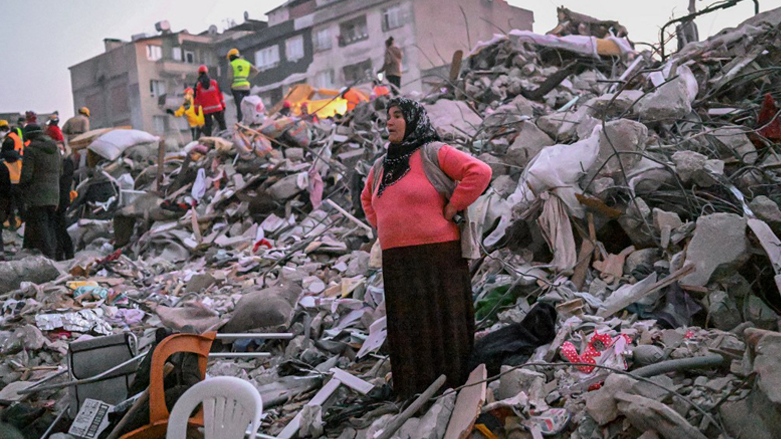At least 11 Iraqis killed in Turkey’s earthquake; none in Syria, says foreign ministry
In neighboring Syria, in which over 5,000 people have been killed, no Iraqi casualties had been reported, according to the foreign ministry.

ERBIL (Kurdistan 24) – Turkey’s Feb. 6 deadly quake and its many aftershocks had killed at least 11 Iraqis in the country while no death of the citizens has been reported in neighboring Syria, the country’s foreign ministry announced.
The Iraqi Foreign Ministry did not elaborate further on the identities of those killed by the earthquake or in which provinces the deaths were reported.
The ministry added that it had launched hotlines to follow up on the reports regarding missing persons or deceased Iraqi nationals as the result of the deadly quake, which has killed over 31,000 people in Turkey and injured more than 80,000 others, according to the official tally while the search and rescue operations are ongoing.
In neighboring Syria, in which over 5,000 people have been killed, no Iraqi casualties had been reported so far, according to the foreign ministry.
At least 6,000 buildings have completely collapsed while thousands of other structures are no longer safe to reside in, according to the Turkish government.
The natural disaster is one of the deadliest that the world has witnessed in a decade.
Iraq and Kurdistan Region have both dispatched medical aid and rescue teams to the earthquake-hit areas in Turkey.
While over 80 countries have extended help to Turkey, the civil war-stricken Syria has been left with little aid, and several international organizations plead for assistance to the country.
“We have so far failed the people in north-west Syria,” the United Nations humanitarian chief, Martin Griffiths has said recently following his visit to the quake-devastated Syria and Turkey.
After mounting pressures on the international community and the UN to find new routes to deliver humanitarian aid, Syrian President Bashara Al-Assad agreed to allow opening two more border crossings from Turkey into Syria for three months without any preconditions.
The affected areas in Syria’s north are ruled by different rival security actors, including Turkish-backed rebels, the Kurdish forces as well as the Syrian army.
